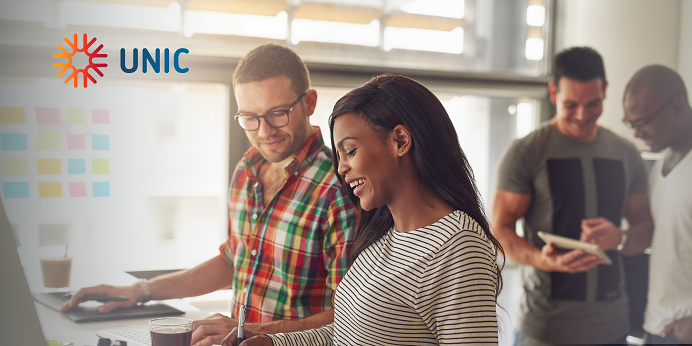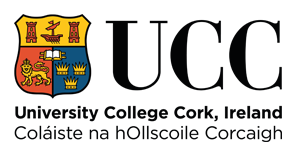THE PREPOSED CHALLENGE:
Many people relocating to Ireland, Cork, have enthusiasm, a skill set and an entrepreneurial attitude, often associated with migrants and migration. How can we support them to progress and thrive? How can we leverage university students, staff, alumni and city partners to add value and not displace existing efforts?
THE CONTEXT
Academic Partner: Armida de la Garza is Senior Lecturer in the College of Arts, Celtic Studies and Social Sciences, where she also was Director of International Strategy for 3 years. Her research interests inlcue internationalisation in Higher Education; on Screen Media and their relation to culture, industry and education, with a particular focus on gender; and on collaborative, interdisciplinary research that bridges the gap between science and the arts. Her recent research projects include internationalisation of the curriculum and STEAM; Collaborative Online International Learning (COIL) for decolonisation of the curriculum; and experiential/practice-based Learning.
Community Partner: Tania Zor is a migrant entrepreneur and founder of Amdie Mexican Dance. She identified that this dance network of women from Latin America had also become a space where migrant women entrepreneurs found mutual support for their hopes and challenges to start their own creative and cultural businesses in Ireland.
Connecting with CityLabs, Tania and Armida together identified the proposed challenge within the context of a broader ambition to create a ‘migrant support clinic’.
Many migrants need advice on various everyday life matters related for example to work, family law, inheritances etc. Many need English language support. Many migrants to Cork are or aspire to be entrepreneurs, start-up micro or small enterprises or self-employed. They bring a wealth of skills, expertise and potential that could significantly contribute to and stimulate the local economy, including social innovation for more inclusive cities.
However, there are a number of barriers to their participation and inclusion as actors and agents in the local enterprise and economy eco-system. This can include gaps in local context skills and knowledge, including language, law and governance or navigating services and supports. Many need marketing advice on strategies to advertise their businesses and services. Whilst many CSO’s provide a range of support services to migrant communities - wider existing business, innovation and entrepreneurship services and supports are rarely, if ever, designed or dedicated to target the specific needs of migrant entrepreneurs and start-up enterprise.
Universities are increasingly challenged to proactively embrace societal engagement, particularly towards nurturing diverse and inclusive communities. Partnerships, Engaged Research, Community based Learning, Volunteering and Lifelong Learning can foster inclusive practices and at the same time, offer students real world learning experiences that cultivate graduate attributes including social responsibility and global citizenship.
This CityLab sets out to explore how can the University might realise a learning partnership, whereby students and recent alumni develop skills and competencies in their professions whilst engaging with and serving needs of local migrant entrepreneurs hoping to start their own business in Cork.
FIRST STEPS
As a first step, this local pop-up workshop event invited migrant entrepreneurs, through the Amdie Group network to a workshop to discuss their experience of starting out as a migrant entrepreneur in Ireland.
Whether they were just beginning to develop their ideas or have already started and are facing the day to day challenges of a start-up business, the session was a first activity that aimed to:
• To better understand the challenges and opportunities for migrant entrepreneurs in Ireland;
• Gather insights to inform next steps to engage and collaborate with with local stakeholders to co-design and deliver actions that can support migrants entrepreneurs in their journey to starting their own business or social enterprise.
In this first online session, non-Irish entrepreneurs were invited to share their experience, with each other and with us to help identify the unique needs of migrant entrepreneurs in Cork and Ireland.
DISCUSSIONS & INSIGHTS:
After hearing the first hand personal experience and story from speaker Lily Ramirez, the group participated in facilitated breakout sessions and discussed:
- Their motivations (the benefits and opportunities) of starting their own business in Ireland
- Challenges and barriers to starting their own business
- Needs for supports and their perpsepctive on priority areas of focus.
Motivations for migrants to start their own business include:
- A desire to connect with and share their own culture in Ireland
- A desire to have an impact on community or social benefit
- A passion in an area or for innovating, learning and growing
- Seeing an opportunity and benefit to connect with a European market
- The benefit of autonomy (time, finance, life direction)
- Arising from frustration or disappointment with labour marketplace or workplace in Ireland
- Inspired by the pandemic
Challenges and Barriers:
A number of barriers and challenges arose in discussions. These included challenges unique to migrants such as:
- Local resistance to new things (cultural diversity)
- Cultural barriers and awareness
- Visa’s and visa status
- Navigating policies and regulations in a context different to their home countries
- English language improvement
On the other hand, some cited ‘inexperience’ and some challenges identified may be considered relevant to all new entrepreneurs with issues like:
• Getting the right business plan
• Lack of market knowledge
• Lack of information entrepreneurship
• Investing time whilst also sustaining other work/families
• Lack of support
For others perhaps at a more progressed business idea stage, needs for business supports related to areas such as investment, supply chain, access to short term employees, business networks and taxes.
Prioirities:
Each group proceeded to summarise list of common/priority needs for supports for migrants starting their own business. These can be grouped into the following categories:
- Business planning, market research and finance
- Business network development
- Tax, legal and regulatory expert advice
- Showcasing, marketing and promotion
- Navigating support available
- Language, Culture and Integration
Whilst ‘Language, Culture and Integration’ is a challenge unique to migrants, other categories resonate with existing business, enterprise, entrepreneurship and innovation needs and it in noted that there are a range of existing supports available within the existing business supports eco-system.
NEXT STEPS:
The discussions suggest that there is potential to explore the opportunity to co-create solutions that:
- Raise awarness of the needs, experience and opportunites for migrant entrepeurship
- Increase awareness of and take up of existing entrepreneuer and start up supports
- Harness the potential of learning partnerships - including the possibility of a a 'clinic model'
- To co-create engaged research initiatives.
CityLabs are now supporting the academic and community partnership to take the process forward to a next stage of co-creating solutions with key stakeholders informed by this first session.

